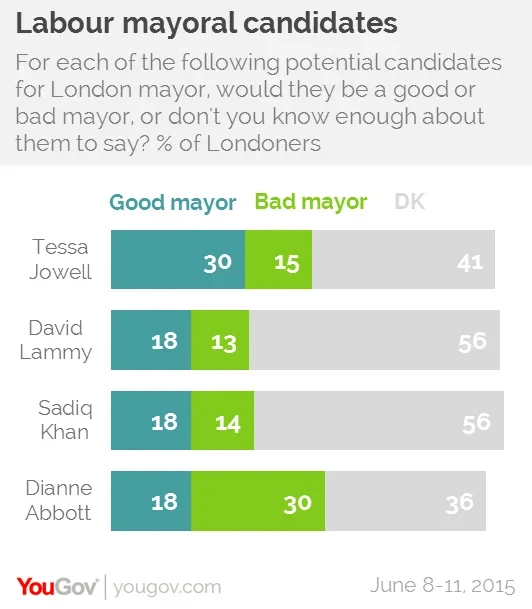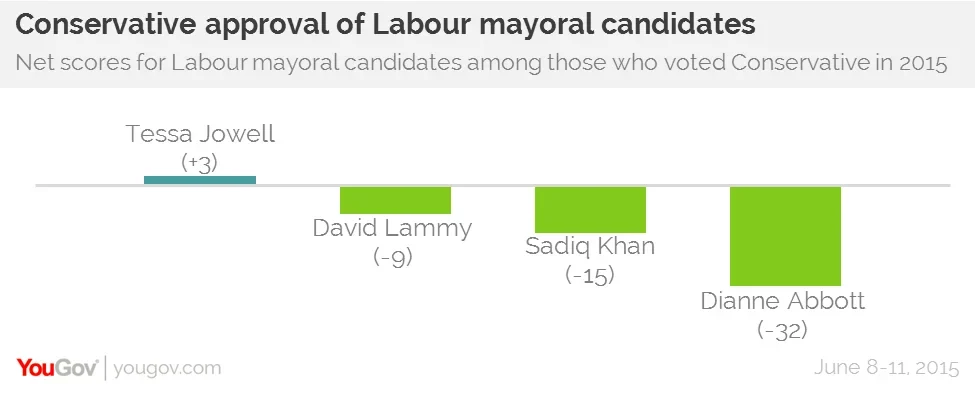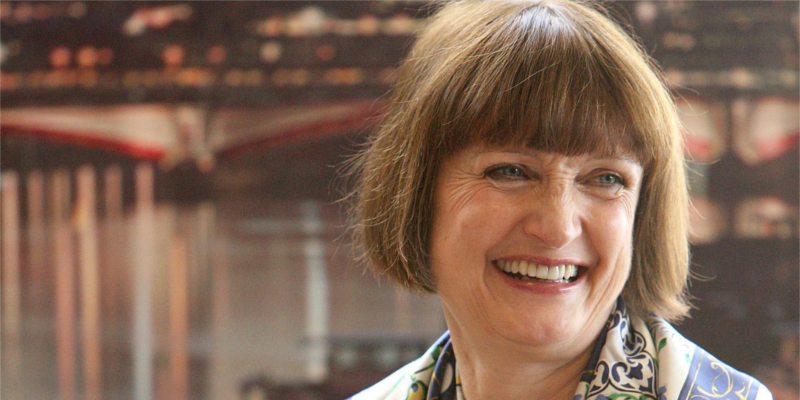Tessa Jowell currently reaches parts of the London electorate that her Labour rivals struggle to win over – this could be Labour's best chance before 2020 to show it is still relevant in the 21st century
Labour’s candidate for Mayor of London should be a shoo-in next year. London is now a Labour city, and, relative to the rest of Britain, getting more so. However, things aren’t that simple: if they were, Boris Johnson would not have been elected Mayor twice, in 2008 and 2012.
Let’s start with the underlying arithmetic. In terms of the Britain-wide popular vote, the Conservative victories over Labour in 1992 were comparable: a 7.6 point lead in 1992, compared with a 6.5 point lead last month.
However, London’s story is different: an 8.2 point Conservative lead in 1992, compared with an 8.8 point Labour lead last month. In 23 years, the net swing across Great Britain was negligible – while in London it was as much as 8.5% to Labour.
Yet Labour has won the Mayoralty only once. Ken Livingstone won as an Independent in 2000, was re-elected as Labour candidate in 2004, then lost twice to Boris. In 2012, Boris’s narrow victory contrasted with Labour’s comfortable victory on the same day in elections to the Greater London Assembly. Boris had a cross-party appeal that Livingstone used to enjoy but which has faded in recent years.
What, then, are Labour’s chances this time? In a special survey conducted last week for Prospect, YouGov has tested the appeal of its four best-known potential candidates. We asked people in each case whether they would make a good mayor or a bad mayor. (Brief technical note: our final election poll in London for the Evening Standard came close to the actual result, with support for each party within 2%, and an average error of 1%.)

The first point to make is that the four Labour hopefuls are still not that well known. For each contender, the largest number reply: “I don’t know enough about them to say”. Among Londoners as a whole, the figure range from 36% for Diane Abbott to 56% for both David Lammy and Sadiq Khan. The “don’t know enough” figures among Labour voters are smaller, but still considerable.
That said, Tessa Jowell has comfortably the best score. 30% say should we make a good mayor, while 15% say she would make a bad mayor – a net score of plus 15. The net scores of the other three are: Lammy plus 5, Khan plus 4, Abbott minus 12.
In net terms, Labour voters have a positive view of all four, with figures ranging from plus 3 (Abbott) to +33 (Jowell). However, the really telling numbers are those for the supporters of other parties. Jowell scores plus 3 among Conservatives, compared with Lammy (minus 9), Khan (minus 15) and Abbott (minus 32). Jowell is also better like than her rivals among the smaller number of Lib Dem and Ukip voters.

This explains separate findings from the same, poll, published in the Evening Standard. We pitched Zac Goldsmith – by far and away the most popular person to be the Conservative candidate – separately against Jowell and Khan. Excluding don’t knows, Jowell leads Goldsmith by 57-43%, while Khan and Goldsmith tie, 50-50%.
In both cases around two in five Londoners aren’t sure who they would back; so there is plenty of room, and time, for things to change. For the moment, however, the lesson is clear. Jowell currently reaches parts of the London electorate that her Labour rivals struggle to win over. And given the way Londoners have voted in the past, this could be a key advantage. If Labour chooses another candidate, they will have a lot of cross-party ground to make up.
One final point is worth making. Although next May’s mayoral election is about the future of London, it is also in some ways about the future of the Labour Party. In the past ten years, Labour has been defeated in two general elections, two Scottish elections, two European Parliament elections and two London mayoral elections. The chances of Labour returning to power next year in Scotland are zero, plus or minus 0%. A Labour mayor in London looks like the party’s best chance between now and 2020 to show if, and how, it is able to change sufficiently to remain relevant in the 21st century.








